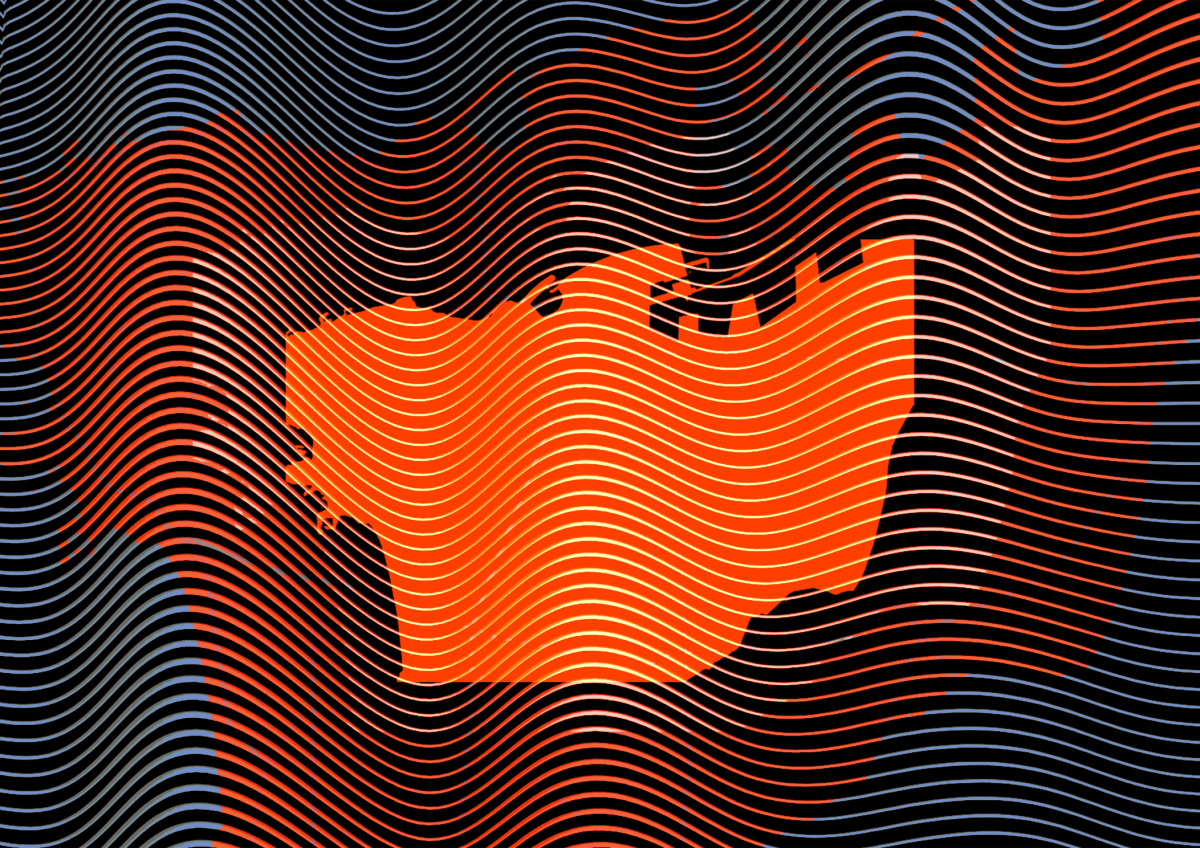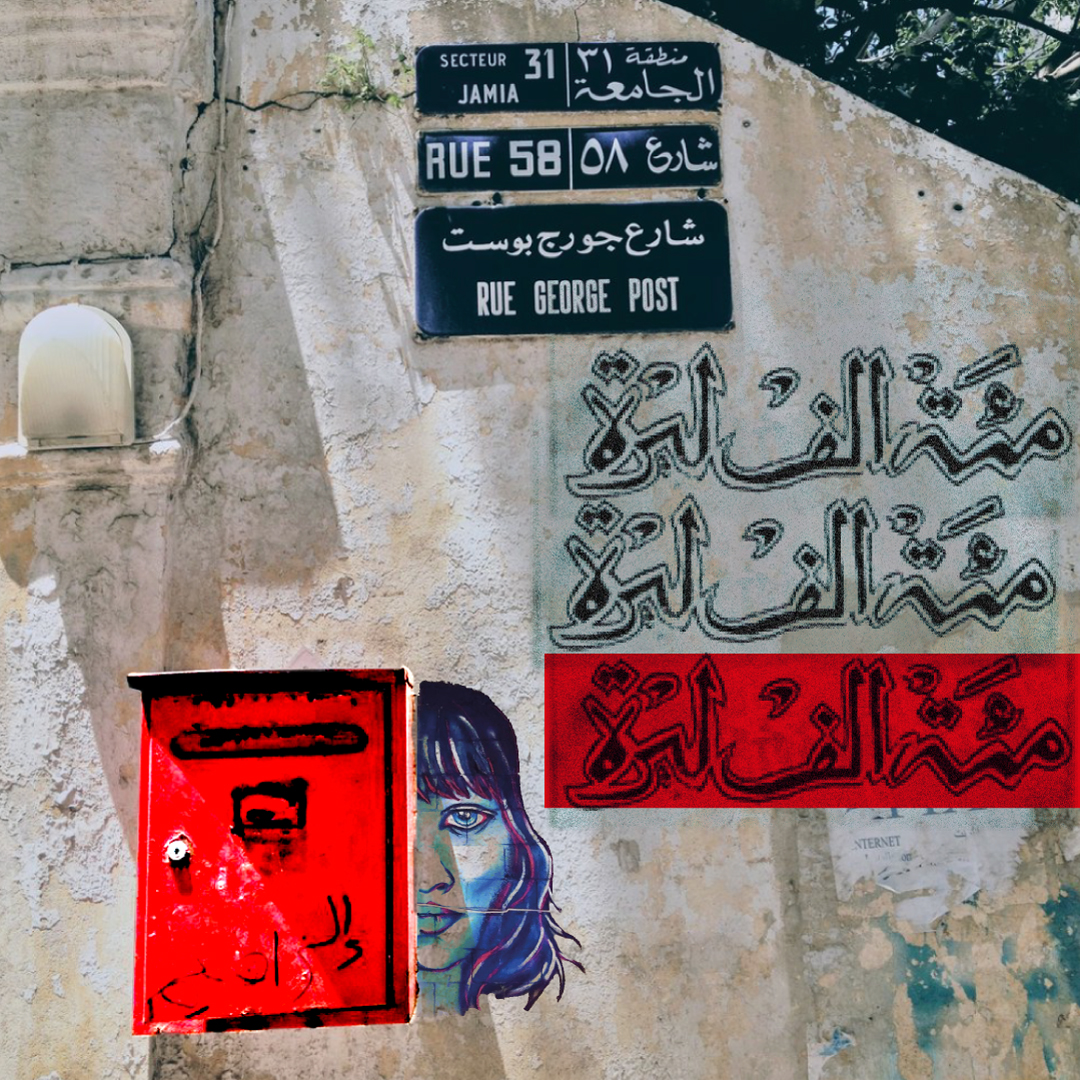
The Impossible Sound Banks of Beirut
Jana Saleh always made use of field recordings of her native city in her compositions and productions until recently, when the uprising and subsequent collapse of Lebanon caused her to pause this practice. To describe the sounds that accompanied the major events that changed the course of her country, she created a lexicon of sounds and found ways to incorporate these auralities into her music.
As a musician and DJ, I often record sound samples with my phone during walks. I use these recordings in my music to create beats or soundscapes. For years I’ve used the sounds of Beirut as a sonic palette in my tracks; it’s what started my habit of capturing sounds everywhere I go. I found it easier (and more discreet) to record audio on a phone to capture an urban environment. With the ease of signal processing, the use of a better device with a better microphone becomes, in my case, unnecessary. Another advantage of using a smartphone is the existence of metadata information and archiving functionality. Each recording is automatically given a timestamp and geolocation, making it easier to locate the recordings for future use.
In the last three years, Beirut has experienced a major political upheaval, an economic collapse, and the largest non-nuclear blast in history. These realities shaped its new sound palette, especially since those events were also very sonically present. On my phone, they are organized into three sound banks:
The October 17 uprising in 2019; the Beirut port blast on August 4, 2020 and its aftermath; and the height of the economic and fuel crises in the summer of 2021.
Techno-Territorial Dissonance
Their titles alone impose an affective connection between the events and their sonic content. For the first time since I started collecting field recordings, the sounds I captured in a specific street or corner in the city became charged with distress. Instead of hearing a potential bass drum in a specific sample, sound became a source of post-traumatic anguish. A clapping sound, which I would have used in a rhythm section, oscillated between a sound of hope or despair.
From an archival perspective, the sounds on my phone reflected the cross-sectioning of names and events. At times, the geolocation of the recording linked with names of high-end nightlife venues and private residences in which I performed as a DJ before the protests that swept Lebanon in 2019. During the uprising, the geolocations were the same but their content now sounded very different. The geolocations of the venues that corrupt politicians and bankers frequented became the sites of mass protests where people aimed at toppling them.
I created a lexicon for my sound bank of Beirut at the start of the October 17 uprising, which includes: crowds chanting, screaming, speeches, mics and megaphones with and without amplification; sounds of people banging on different surfaces like metal, wood, using tools or with bare hands; hands clapping; portable musical instrument sounds like percussion, brass and wind instruments, and an accordion; voices, amplified or in recorded music; and food preparation sounds.
To me, these sounds conjure desire and hope. And on the flipside of that, the second sound bank in 2019 contains: tear-gas launching, rubber bullets, water cannons, gunshots, burning tires, glass breaking, loud screams, ambulance sirens, motorcycle engines, and horns. This particular sound bank is associated with a burning anger towards the ruling class and, in retrospect, is mixed with disillusionment.
Composing the Aftermath
The August 4 explosion sound bank exists not as intentional sound recordings but as real-time witnessing to the events at the port before the blast occurred. I experienced the event at very close range and attempted to recollect it from memory. The sounds vary from one witness to another but to me, they included: fire burning, siren sounds, something exploding, a loud sound heard as planes or not, a vacuum sound that rattled my apartment, a blast, a rumble, a bigger blast, sounds of breaking materials such as wood, glass, and concrete, human voices, and car alarms.
In the months that followed, when I was able to record again, my sound bank contained: sweeping broken glass, moving concrete blocks and pieces, the thud of wood, aluminum and construction material, crying, all of which provoke varying forms of anxiety.
And lastly, the sound bank representing the peak of the economic collapse contains: the constant hum of power generators, fights, screaming, and honking, prompting feelings of exhaustion and despair.
Although the act of recording and archiving felt necessary then, sampling these sounds from Beirut came with moral and emotional quandaries. I could no longer bring myself to use these recordings in musical compositions because it was impossible for me to disconnect the sounds from the people and the city that created them. Instead, what I am trying to achieve as a musician is an interpretation of what these recordings bring to me into my compositions. What is sampled is the imbrication of the city on me; a layering that is perhaps most audible in my most recent compositions «Soupire» (French for sigh). I frequently return to these diverse sound banks and, although I do not use them, they help chart a vast sonic terrain that allows me to connect musically with my city.
This article is part of the virtual exhibition «Norient City Sounds: Beirut» curated and edited by Rayya Badran.
Biography
Links
Shop



Published on August 25, 2022
Last updated on February 14, 2024
Topics
Why do people in Karachi yell rather than talk and how does the sound of Dakar or Luanda affect music production?
Sampling is political: about the use of chicken clucks or bomb sounds in current music.
How do acoustic environments affect human life? In which way can a city entail sounds of repression?
Snap
